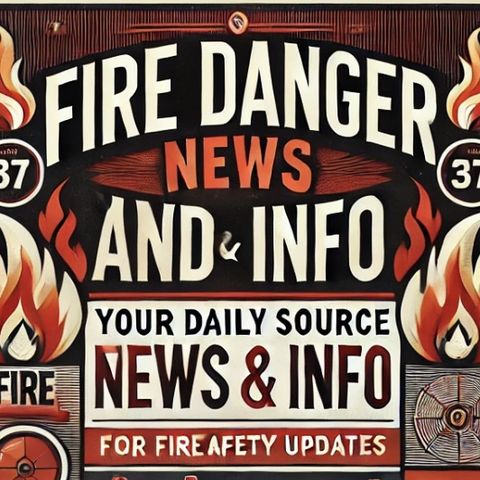Cutting-Edge Fire Science: USGS Leads the Charge Against Wildfires in the West

Download and listen anywhere
Download your favorite episodes and enjoy them, wherever you are! Sign up or log in now to access offline listening.
Cutting-Edge Fire Science: USGS Leads the Charge Against Wildfires in the West
This is an automatically generated transcript. Please note that complete accuracy is not guaranteed.
Description
Wildfires pose a significant threat to life, property, and natural resources, especially in the western United States. Addressing this challenge requires cutting-edge fire science, and the U.S. Geological Survey (USGS)...
show moreUSGS's Wildland Fire Science program plays a crucial role in understanding the dynamics of wildfires and their impacts. This comprehensive research initiative integrates data from satellite imagery, aerial reconnaissance, and field observations to create detailed fire behavior models. These models are essential for predicting fire spread, assessing risk, and planning effective interventions.
One of the program's key contributions is the development of improved fire danger rating systems. These systems combine meteorological data, fuel moisture levels, and vegetation types to provide more accurate predictions of fire risk. Enhanced fire danger ratings enable firefighters and land managers to allocate resources more efficiently and reduce the likelihood of devastating outbreaks.
In addition to predictive tools, USGS fire science also focuses on post-fire assessments. Understanding how landscapes recover after a wildfire is vital for ecosystem restoration and long-term planning. By studying post-fire erosion, sediment transport, and changes in vegetation, USGS scientists provide valuable insights that inform reforestation efforts and habitat restoration projects.
Climate change is another critical factor influencing wildfire frequency and intensity. USGS researchers are examining how shifting climate patterns, such as prolonged droughts and higher temperatures, are contributing to more severe wildfire seasons. This research helps policymakers develop strategies to mitigate the impacts of climate change on wildfire dynamics and enhance community resilience.
Community engagement and education are also pillars of the USGS Wildland Fire Science program. Outreach initiatives aim to raise awareness about fire prevention and safety measures among residents in high-risk areas. By providing accessible information and resources, USGS empowers communities to take proactive steps in protecting themselves and their environments.
One notable success story is the application of USGS science in the management of the 2020 wildfire season. During this challenging period, USGS data and models were instrumental in guiding firefighting efforts and assessing damage. These timely interventions helped save lives, minimize property loss, and preserve critical habitats.
The ongoing mission of USGS Wildland Fire Science is to continuously refine and expand knowledge in this field. By embracing new technologies such as remote sensing, artificial intelligence, and machine learning, USGS aims to enhance the precision and scope of wildfire research. These advancements will further improve our ability to predict, prevent, and respond to wildfires.
For those interested in learning more about the vital work being done, the USGS Wildland Fire Science webpage offers comprehensive resources and updates. Visitors can explore the latest research findings, access educational materials, and discover how USGS science is making a tangible difference in wildfire management and community safety.
In conclusion, the USGS Wildland Fire Science program represents a critical component in the fight against wildfires out West. Through rigorous research, innovative tools, and community collaboration, USGS is helping to safeguard lives and landscapes from the ever-present threat of wildfires.
Information
| Author | QP-4 |
| Organization | William Corbin |
| Website | - |
| Tags |
Copyright 2024 - Spreaker Inc. an iHeartMedia Company
